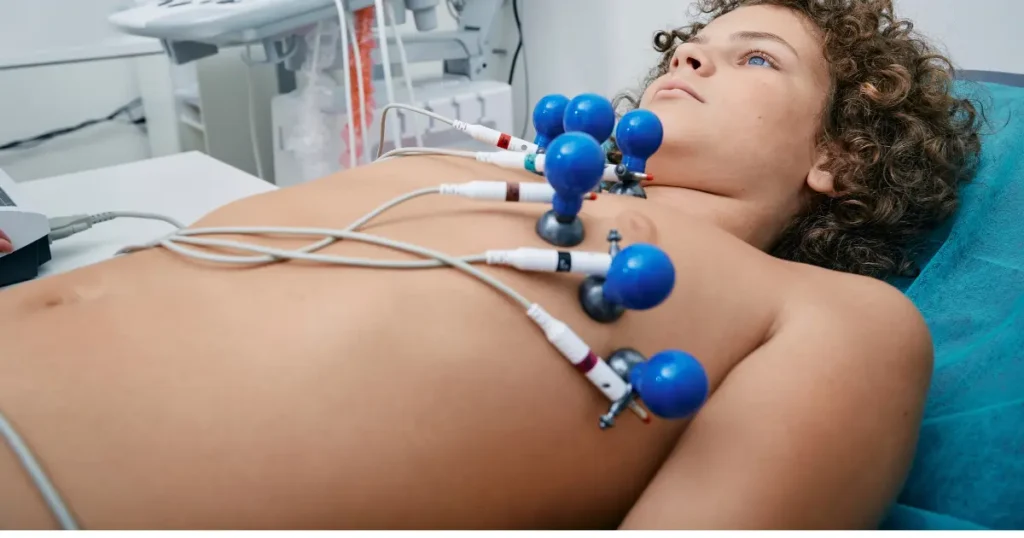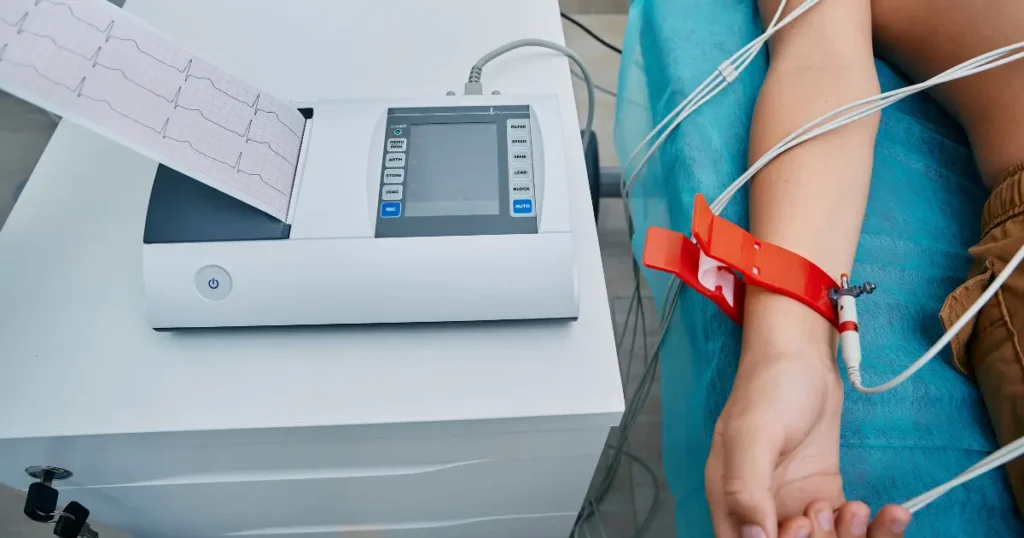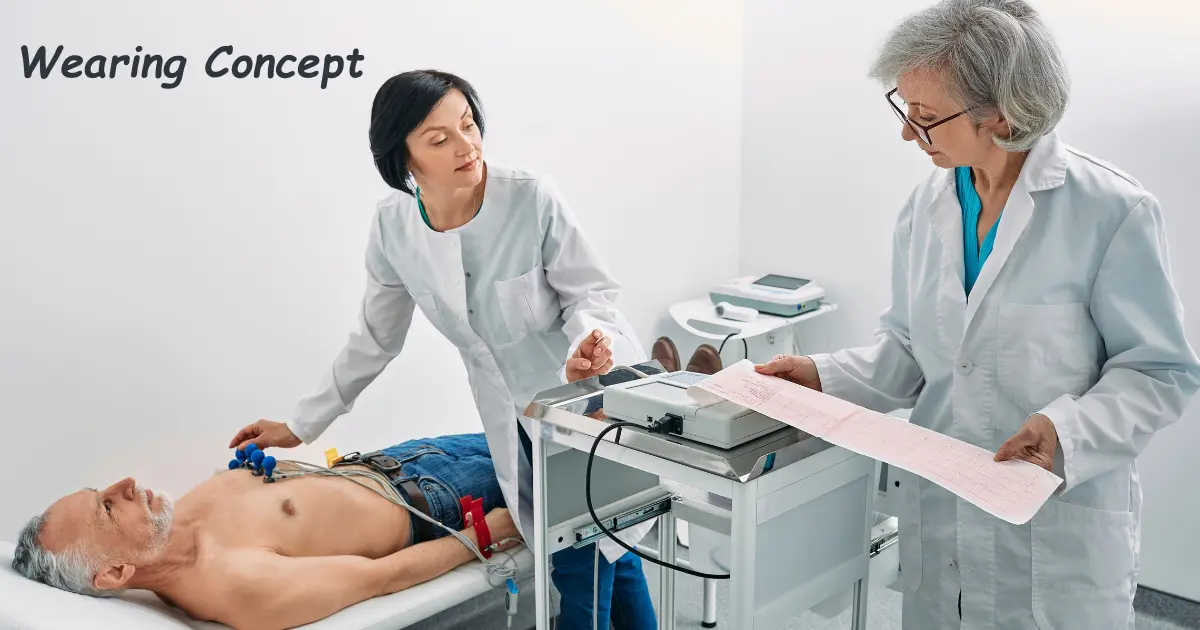An electrocardiogram (ECG) test is a crucial medical procedure used to assess the heart’s electrical activity. It helps diagnose various heart conditions and is a common test that many people undergo. Preparing for an ECG test can be straightforward, but one essential aspect is knowing what to wear. This guide provides all the information you need to ensure you’re dressed appropriately for your ECG test, making the process smoother and more comfortable.
What is an ECG Test?

An ECG test records the electrical signals in your heart. It’s a painless procedure that provides valuable information about your heart’s rhythm and can help diagnose conditions like arrhythmias, heart attacks, and other heart-related issues.
Why is an ECG Test Important?
- Diagnoses Heart Conditions: Helps identify irregular heart rhythms, blocked arteries, and other heart issues.
- Monitors Heart Health: Used to monitor heart health over time, especially if you have a history of heart disease.
- Pre-Surgery Requirement: Often required before surgeries to ensure the heart is functioning properly.
What to Wear for an ECG Test
Choosing the right attire for your ECG test can significantly impact the ease and comfort of the procedure. Here are some key points to consider when selecting your outfit.
Comfortable and Loose-Fitting Clothes
- Why Loose Clothes? Loose clothing makes it easier to place the electrodes on your chest, arms, and legs.
- Examples: T-shirts, loose blouses, sweatpants, or gym shorts are ideal choices.
Avoid Wearing Jewelry
- Interference with Electrodes: Jewelry, especially metal accessories, can interfere with the placement and function of ECG electrodes.
- Recommendation: Remove all jewelry, including necklaces, bracelets, and rings, before the test.
Opt for a Two-Piece Outfit
- Ease of Access: Wearing a two-piece outfit, like a top and pants, allows easier access to your chest area.
- Examples: Shirt and pants or a blouse and skirt.
Avoid Lotions and Oils
- Electrode Adhesion: Lotions and oils can prevent the electrodes from sticking properly to your skin.
- Recommendation: Avoid applying lotions, oils, or creams on the day of the test.
What to Expect During an ECG Test
Understanding what happens during an ECG test can help reduce anxiety and make the experience smoother.
Preparation
- Removal of Upper Clothing: You may be asked to remove your shirt or blouse to allow the electrodes to be placed on your chest.
- Placement of Electrodes: Small, sticky electrodes are attached to your chest, arms, and legs.
The Test Procedure
- Lying Down: You will lie down on an examination table.
- Recording Electrical Activity: The machine records the electrical signals from your heart, which typically takes a few minutes.
After the Test
- Removing Electrodes: The electrodes are gently removed.
- Resuming Activities: You can usually resume your normal activities immediately after the test.
How to Prepare for an ECG Test

Proper preparation can help ensure accurate results and a smooth testing experience.
Follow Your Doctor’s Instructions
- Medical History: Inform your doctor about any medications you are taking or medical conditions you have.
- Fasting: Some tests might require you to fast for a few hours before the procedure. Follow your doctor’s advice.
Hydration and Rest
- Stay Hydrated: Drink plenty of water the day before your test.
- Get Enough Sleep: Ensure you get a good night’s sleep before the test day.
What Should I Wear for an ECG Test?
It’s best to wear loose, comfortable clothing that allows easy access to your chest, such as a two-piece outfit like a shirt and pants. Avoid wearing any jewelry and refrain from applying lotions or oils on the day of the test.
Can I Eat Before an ECG Test?
Generally, you can eat before an ECG test unless your doctor advises otherwise. In some cases, you might be asked to fast for a few hours prior to the test.
How Long Does an ECG Test Take?
The ECG test itself usually takes about 5 to 10 minutes. However, you may need to allow extra time for preparation and post-test procedures.
What Should I Avoid Before an ECG Test?
Avoid applying lotions, oils, or creams on your skin. Additionally, remove all jewelry to prevent interference with the electrodes.
Is an ECG Test Painful?
No, an ECG test is painless. You may feel a slight discomfort when the electrodes are removed from your skin, but it is generally a quick and painless process.
Quick Reference
| Item to Wear | Why It’s Recommended |
|---|---|
| Loose T-shirt | Easy access for electrode placement |
| Sweatpants | Comfortable and allows easy movement |
| Gym Shorts | Provides easy access to the legs |
| Two-piece outfit | Facilitates access to the chest area |
| Item to Avoid | Reason |
|---|---|
| Jewelry | Interferes with electrode placement |
| Lotions/Oils | Prevents electrodes from sticking |
| Tight Clothing | Hinders proper electrode placement |
Conclusion
Preparing for an ECG test involves knowing what to wear and how to get ready to ensure accurate results and a comfortable experience. Opt for loose, comfortable clothing, avoid lotions and oils, and follow your doctor’s instructions for any specific preparations. Understanding the process and what to expect can help ease any anxiety and make the test go smoothly. By following these simple guidelines, you’ll be well-prepared for your ECG test and on your way to ensuring your heart health is well monitored.
FAQs
Here are some frequently asked questions given below:
Can I wear a bra during an ECG test?
Yes, you can wear a bra, but you may be asked to remove it to place the electrodes properly on your chest. It’s best to wear a two-piece outfit to make this easier.
Will I need to shave my chest for an ECG test?
In some cases, if you have a lot of chest hair, a small area may need to be shaved to ensure the electrodes stick properly. This will be done by the technician if necessary.
Can I exercise before an ECG test?
It’s generally recommended to avoid strenuous exercise right before your test, as it can affect the results. Follow your doctor’s specific instructions regarding physical activity.
Do I need to take any special medications before an ECG test?
You don’t need to take any special medications before an ECG test unless your doctor instructs you to do so. Continue taking your regular medications unless advised otherwise by your healthcare provider.
How should I prepare my skin for an ECG test?
Avoid applying lotions, oils, or creams on the day of the test to ensure the electrodes adhere properly to your skin.
